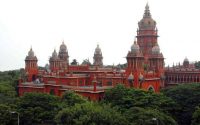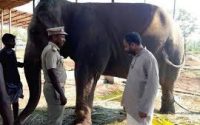$100 Website Offer
Get your personal website + domain for just $100.
Limited Time Offer!
Claim Your Website NowMadras High Court orders early transplantation of kidney on 62-year-old patient.
Source – thehindu.com
The Madras High Court has directed the Transplant Authority of Tamil Nadu (Transtan) to make an endeavour to facilitate an early kidney transplantation for a 62-year-old patient, suffering from chronic renal disease since 1991. He is yet to get a cadaveric transplant, despite having registered with the authority on February 18, 2016.
Disposing of a writ petition filed by N. Krishnan, Justice C.V. Karthikeyan ordered that the petitioner be considered, whenever a matching kidney is available in the north zone of the State, though it was the case of Transtan that the petitioner was on waitlist number 57, in common pool (consisting of all age groups), and number 32 in the above 60 years pool. “It is directed that whenever a cadaver kidney is available in the north zone, and if other parameters are proper… then the respondent may bestow their personal attention and endeavour to afford continuity of life to the petitioner by granting the said cadaver kidney for the benefit of the petitioner whenever the opportunity arises,” the order read.
“The fourth respondent (MIOT International Hospital at Manapakkam), where the petitioner intended to undergo transplantation, may also join in this endeavour, and as and when a cadaver kidney is available in the north zone, seek the same, and subject to availability, transplant the same to the petitioner,” it said.
In his affidavit, the petitioner had stated that his kidney function started deteriorating in 2015, and since then he had been undergoing dialysis thrice a week. He decided to undergo kidney transplant at the MIOT International Hospital, and got himself registered with Transtan in February 2016, when he was 58 years old.
His counsel claimed that the government had taken a policy decision to give priority in cadaver transplantation to patients who were below 60 years of age and therefore the petitioner had to wait for years together, though he was below the prescribed age limit when he first registered with Transtan.
On the other hand, the private hospital informed the court that the petitioner was in waiting list number one, in so far as the rank list maintained by the hospital was concerned, and therefore he would be given first priority when a matching cadaver becomes available within the hospital. The rank list of Transtan would have to be followed when the cadaver comes from outside.
The counsel for Transtan, in turn, told the court that it maintains a database of four kinds of priority lists — one for each hospital in the State; a second for all government hospitals combined; third for all private hospitals combined; and fourth for government and private hospitals combined. Whenever a donor cadaver becomes available at a private hospital, the first priority for transplantation would be accorded to a matching recipient available in the same hospital, the second priority would be given to a combined list of government as well as private hospitals, third to the hospitals situated outside the State and fourth to foreign nationals.
It was also stated that Tamil Nadu was divided into three zones for the pupose of sharing cadavers and that MIOT Hospital fell in the north zone. After listing out the petitioner’s rank in the common pool as well as the above 60 years pool, the counsel said the petitioner would be given priority, as and when an in-house cadaver donor was available.



